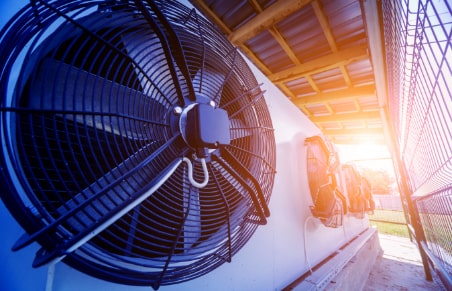Should You Install UV Sensors with Your UV Lamps Units?
Have you been recommended to use a UV sensor with your UV unit? Are you wondering if it is worth installing a UV sensor? If so, you have come to the right place.
We have seen an increase in environmental agencies suggesting installing a UV sensor with UV units.
However, do you need it?
Well, the answer to this question is quite subjective. Based on what you deem appropriate and safe for your UV unit can help you determine whether you need a UV sensor.

But, to make a decision, you will need adequate information on the same. Hence, we have provided the benefits and disadvantages of installing a UV sensor with your unit.
UV Sensor: What Is It?
UV sensors, as the name suggests, are sensing devices to determine the amount of UV light passing through the water. For example, if the UV sensor shows a reading of 90%, it means that 10% of light from UV lamp for water treatment is blocked by any contaminants present in the water.
When you pass tap water through the UV unit installed with a UV sensor, you will get a reading of 95%.
Advantages of UV Sensor
Effectiveness
A UV sensor can be advantageous to understand the effectiveness of the UV lamps in the UV unit. The real-time reading will tell you if the UV lamps in the UV unit are working efficiently.
Working
Unless the professional who installed your UV unit has done a good job, you won’t know if the unit is doing the work it is supposed to do. A UV sensor can help you understand if it is working as it should. This can give you peace of mind in the long run.
Frequent Inspections
An inspector from an environmental agency inspecting your UV unit will be glad to see a UV sensor installed with the UV unit. It will immediately show them if the unit is performing as it should.
Disadvantages of UV Sensor
Lack of Frequent Inspections
As mentioned above, UV sensors are highly appreciated by inspectors from environmental agencies. And if you are going to have frequent inspections, having a UV sensor makes sense.
However, if you have a residential UV unit, chances of such frequent inspections are extremely low. Hence, having a UV sensor might not be advantageous.

Expensive
UV sensors are expensive. If the UV units are large and installed in industrial or commercial spaces, the cost of UV sensors is not a big deal. When doing a cost-benefit analysis, you will find that installing UV sensors in industrial spaces is beneficial over costs.
However, in residential spaces, smaller UV units are installed. The cost of a high-quality UV sensor starts around $200 or more. A standard UV unit will also start at around the same price range. Hence, installing a UV sensor can become expensive for some users.
Electrical Hazard
At the end of the day, a UV sensor is an electrical component. There are chances of an electrical hazard no matter how good the quality the UV sensor is.
Bottom Line
Whether you should install a UV sensor or not is subjective and will depend on the above factors. Most importantly, it will depend on whether you are installing a UV unit in industrial spaces or residential spaces.
Moreover, irrespective of whether you install a UV sensor or not, you will most definitely change the UV lamps after 12 months or 9,000 hours of operation. This will keep the UV unit effective and in its best shape.
We at Light Spectrum Enterprises, Inc. can offer you the right advice when it comes to installing UV units or any other components. Although we are a leading manufacturer of UV lamps and other accessories, our team also has acute domain knowledge to provide adequate advice.
Contact our team to find out more.

